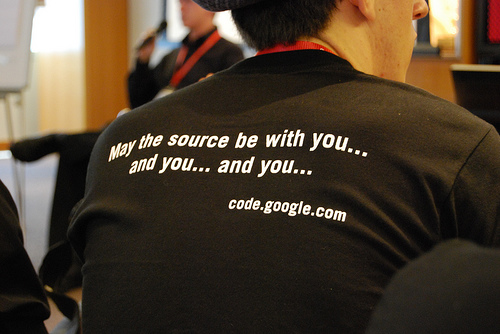[Davidtheo]: But did they know what they where installing and where they told about it.
At least they did
IF they read the Windows EULA, the same EULA that was far more restrictive for Vista than XP ever dreamed of. In the original, you couldn't even change a significant piece of hardware without having to buy another copy of the OS, much less use it on a second computer within the same house.
______________________________
back to piracy, though...
Using a pirated copy of commercial software -- ironically -- hurts open source and freeware alternatives! Let me explain.
Adobe
Photoshop. Microsoft
Office. Microsoft
Windows. Perhaps the three most pirated programs in history. Software piracy is so widespread that it isn’t just some fringe phenomenon trickling around the globe, it’s the norm. You've heard the excuses: "They charge too much." "They can afford it." "They encourage it because it increases their market share." and so on. (I have a friend who visits China twice a year with his job, and he brings back two suitcases full of pirated software and movies he paid a $1 or less for each. Dude drives me crazy.)
But consider the long-term advantage of piracy to the vendor. A commercial software company would certainly prefer that you pirate a version of their software, rather than avoiding it altogether. While they’re making less per user, they still have your support in using it, and that often leads to more revenue for them down the line. Looking for a job in graphics or web design? When you read the want ads, you'll see
Adobe Photoshop, Dreamweaver, Flash… and they're all industry standard programs.
The point is, even if you haven’t paid for the software, the company has already sold you on it. You directly contribute to either establishing or sustaining it -- and its proprietary formats -- as
de facto industry standards. At that point, you're simply doing Adobe’s market promotion for them every time someone asks you what graphics software you use, or which is the best. Microsoft has long encouraged piracy over non-use. Even if you're not paying for Windows and other Microsoft apps, you're still keeping the company's market share above 90%. And they know there's less than a 10% chance you'll jump to Apple or Linux.
........................ Still with me?When you choose to pirate software, FOSS (Free, open source software) loses out. Microsoft/Adobe loses revenue, and to make a profit for the stockholders, they often have to raise prices elsewhere to keep up. If you (or anyone in China in David's case) choose to download and use a pirated copy of MS Office 2007, then some other software like OpenOffice -- or in David's case, Kingsoft (for $70) -- loses.
A good example of this is Adobe Flash; as of right now Flash remains a closed format, and the
only way you can competently develop Flash at the moment is with Adobe’s software. For all practical purposes, Adobe has established a monopoly here, and there are almost no alternatives at all (except perhaps,
OpenLaszlo, in a very limited way). If you develop with Adobe Flash, whether it’s paid or pirated, you’re going to be supporting Adobe and tightening their hold on this standard in the industry. Same goes for saving documents in Microsoft's MS-OOXML format and MS Office.
If you really want to 'stick it to the man', using FOSS and open formats developed with open standards is the way. Not stealing it. If the software built using open standards is the mainstream, then you won't feel the urge to perpetuate that pirated $800 copy of Photoshop.
